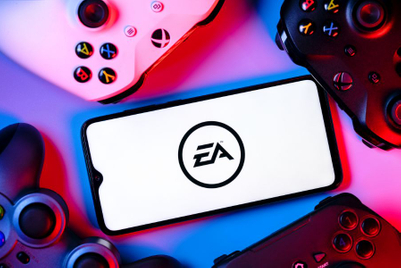
What do you expect the new-business market to be like this year?
 Mark Patterson, CEO Asia Pacific, Group M (MP): It’s hard to distinguish one year from the next in reality. We pitch every day somewhere in the region in one of our agencies; it’s been like that for last few years and it’ll be for the next few I’m sure.
Mark Patterson, CEO Asia Pacific, Group M (MP): It’s hard to distinguish one year from the next in reality. We pitch every day somewhere in the region in one of our agencies; it’s been like that for last few years and it’ll be for the next few I’m sure.
 Barry Cupples, CEO Asia Pacific, Omnicom Media Group (BC): Fluid. There are a lot of expectations in the communications industry, so the demands placed on the service providers will increase. With the growth of accountability and procurement talent, I do not expect that the need to review ‘services’ will diminish.
Barry Cupples, CEO Asia Pacific, Omnicom Media Group (BC): Fluid. There are a lot of expectations in the communications industry, so the demands placed on the service providers will increase. With the growth of accountability and procurement talent, I do not expect that the need to review ‘services’ will diminish.
What was your best celebration after a pitch victory?
MP: London, Ogilvy, early 1990s. After our Argos Stores win, we went from the agency bar to a pub to a restaurant to a bar to a club to a snooker hall, and eventually to a pub at Smithfield market that served beer at breakfast time. We then went back to the office for an 8:30am meeting. The joy was heightened later when the account was passed to a new team within the agency.
BC: I’m not sure we have the time to celebrate any! I fondly remember a free fish and chip lunch when I started at Grey many years ago.
What’s the most frustrating part of pitching?
MP: Losing. Everything else pales in comparison.
BC: The time frame applied to your response. Often it is a very quick turnaround and there’s not enough time to have done the comprehensive job across all aspects of the client’s business that we would have liked. I share the concern of my peer group about just how much emphasis is placed on price rather than IP, strategic capability or even the level of talent that you have on board.
How long does it take to heal after a pitch defeat?
MP: It depends on how long it takes to open the bottle and blame someone else.
BC: Between three hours and three years. Finding two people with the same answer on this may prove interesting. Personally, I hate losing, but so long as we have had a good debrief about why and where we were weaker than our competition, I move on pretty quickly. I leave the voodoo curses and hexes until later.
Are most pitches now inevitably procurement-driven, price-led and awarded on this basis?
MP: It is the necessary due diligence in all media pitches; it’s just how it is. The difference is in the weighting versus other factors, and the role and voice that other influencers have in the client team. It varies significantly by category, by client and by market. Working that out before, during and after is an art and a science.
BC: They are, but that is a natural evolution of the industry when it is transparent and accountable. We need to find a way that will have clients more open to including services that make a difference to their businesses and results. We certainly have the capabilities around content and technology, and these two factors are key in finding the right business model as we move forward.
What’s the one quality or value about your agency that really helps in a pitch?
MP: Honesty.
BC: I’m taking the Fifth Amendment on that question. If we have a ‘secret sauce’ I would hardly want it shared on this forum. The one thing we always insist is that our teams and their managers ‘do their best’. If they deliver that at all times then we will have a product that will always be worth considering.This article was originally published in the 28 January 2010 issue of Media.


.jpg&h=334&w=500&q=100&v=20250320&c=1)

.jpg&h=334&w=500&q=100&v=20250320&c=1)

.jpg&h=334&w=500&q=100&v=20250320&c=1)


.jpg&h=334&w=500&q=100&v=20250320&c=1)
.jpg&h=334&w=500&q=100&v=20250320&c=1)
.jpg&h=334&w=500&q=100&v=20250320&c=1)
.jpg&h=268&w=401&q=100&v=20250320&c=1)



+(900+x+600+px).png&h=268&w=401&q=100&v=20250320&c=1)

+(900+x+600+px).jpg&h=268&w=401&q=100&v=20250320&c=1)
